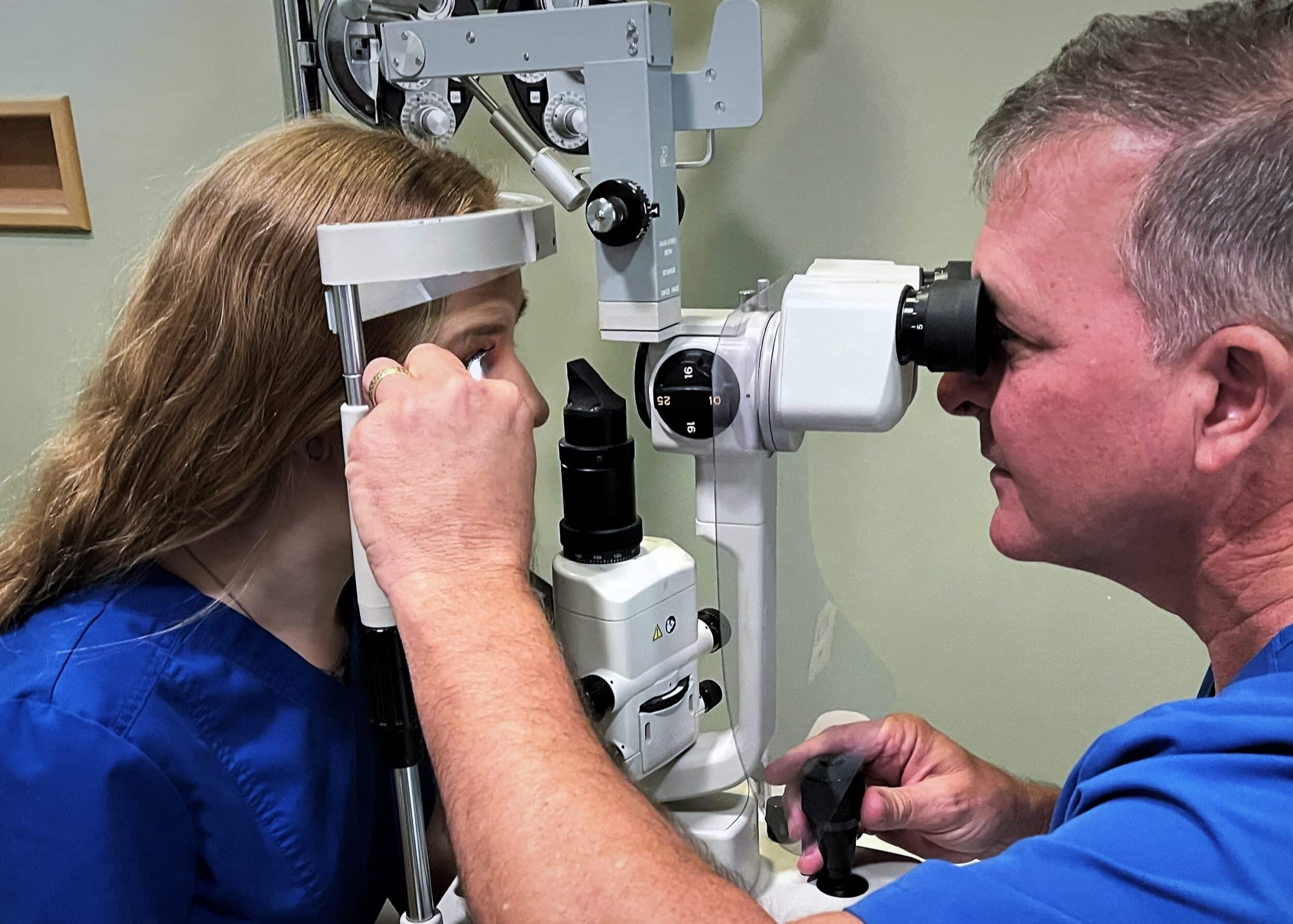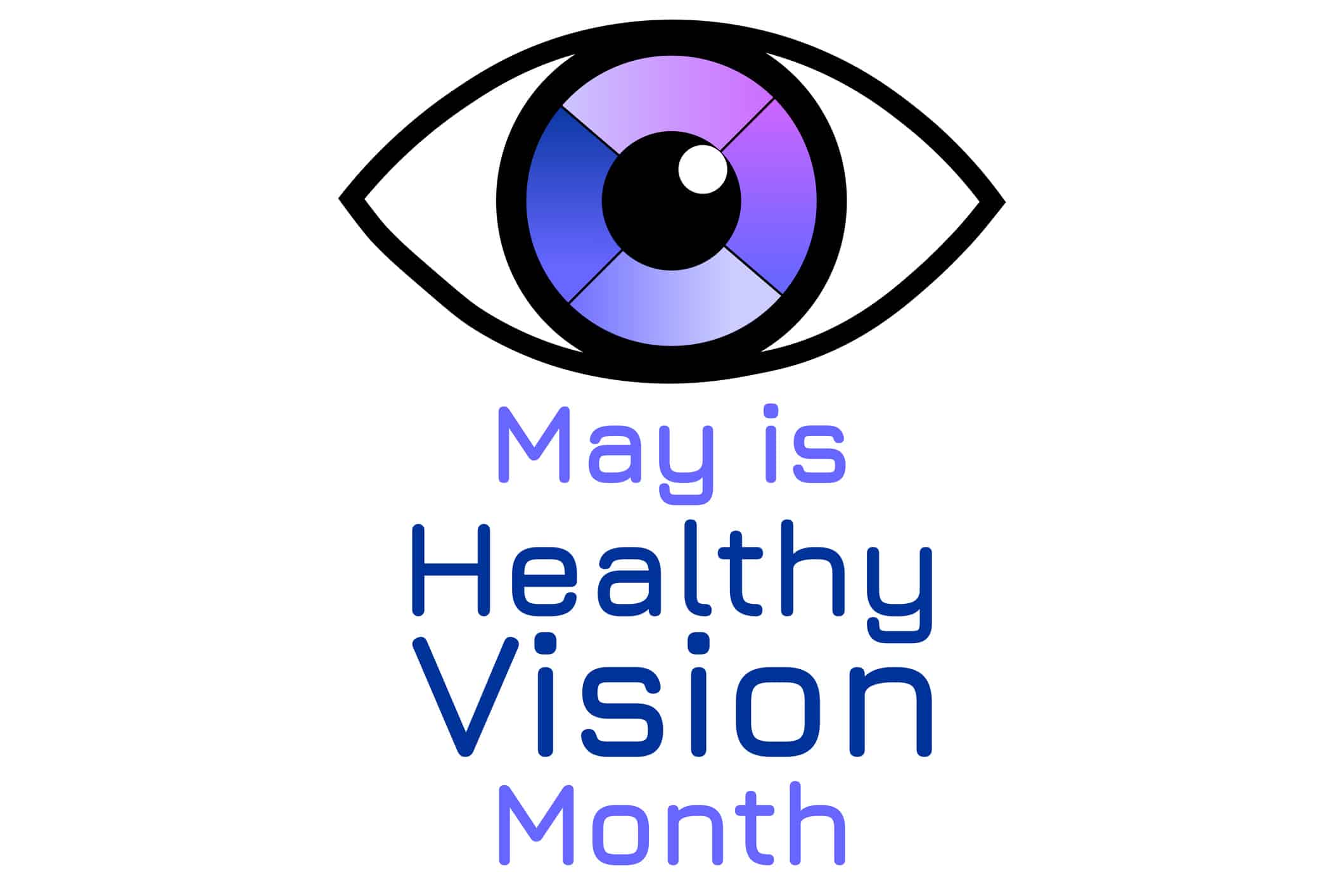
When it comes to doing the right things to boost your health, you’re a solid 10: You exercise, you eat well, and you avoid bad habits. Why, your primary doctor even has an inspirational poster of you on their clinic wall!
You’re putting in the time and effort to do right by your heart, lungs, and muscles—but what about your eyes? Are you doing enough to preserve and protect one of your most precious gifts from nature?
“Even today, millions of Americans have some form of impaired vision, often the result of the aging process,” says Dr. Todd Williamson, eye surgeon with Hattiesburg Eye Clinic. “For many, better care of their eyes earlier in life might have avoided some of this damage.”
Although certain factors like genetics or the aging process are out of your control, Dr. Williamson says you can still do a lot to keep your vision as healthy as possible throughout your life. In recognition of May as Healthy Vision Month, here are 3 areas where you can maximize your eye health.

Lifestyle Choices
There are good lifestyle choices, and there are bad ones. Just like the rest of your body, your eyes benefit or suffer depending on what you do or don’t do involving your body.
One of the most important for vision is eating an “eye-friendly” diet.
“A well-balanced diet goes a long way toward maintaining ocular health,” says Dr. Williamson. “Studies show that a diet high in antioxidants slows certain disease processes including many involving the eyes. Eating plenty of green leafy vegetables, berries like blueberries or strawberries, or foods with Omega 3 fatty acids, lutein, or zeaxanthin can help reduce the effects of macular degeneration, dry eye syndrome, and glaucoma, to name a few.”
On the other hand, Dr. Williamson says you do well to avoid habits like tobacco use or excessive alcohol consumption.
“Abuse of alcohol or tobacco is not only bad for your health in general, it can make long-term vision issues worse. For one, these habits contribute to blood vessel constriction and a decrease in your eyes’ oxygen supply, which in turn can lead to ocular blood vessel blockages and faster development of macular degeneration, glaucoma, diabetic retinopathy, and cataracts. These could ultimately lead to permanent and devastating vision loss.”
Protective Measures
Besides disease, your eyes also face dangers from physical injury or hostile elements within the environment. The key is to take direct action in high-risk situations by wearing eye protection appropriate to the situation.
“Eye protection definitely reduces the chances or severity of eye damage,” says Dr. Williamson. “Protective eye wear is a definite must if you participate in sports or other activities where eye injury potential is high, including baseball, tennis, pickleball, or softball. And, you’re definitely putting your eyes at risk if you perform jobs like welding, bricklaying, or even weed-eating and hedge-trimming without proper eye protection.”
Even nice sunny days could be potentially dangerous to your eyes if you don’t protect them. “The sun’s ultraviolet rays can severely damage the eyes and worsen the effect of other conditions. You can reduce the risk by wearing sunglasses rated to block both UVA and UVB rays while outdoors or driving,” says Dr. Williamson.
Proactive Care
Many age-related eye diseases share a similar tragic aspect: Early onset of conditions like glaucoma or macular degeneration can occur without any noticeable symptoms. By the time you realize something’s wrong, an extensive amount of damage may have already occurred to your vision.
The answer: regular eye exams beginning around age 40 to detect early signs of disease.
“People who start regular eye exams in early middle age gain an edge on maintaining good vision for life,” says Dr. Williamson. “If we do detect the beginnings of eye disease, we usually have more options for stopping or reducing the long-term effect than if we find it later.”
Dr. Williamson says this is especially true for people who have a family history of eye disease, or who are managing a chronic condition. “Because their risk is much higher for possible vision impairment, anyone with an underlying systemic disease like diabetes or high blood pressure should undergo annual eye exams regardless of their age.”
The ability to see is just as important later in life as when you were younger. So, just as you proactively look out for the rest of your body, don’t forget to give your eyes their own healthy dose of TLC.
To learn more about eye care and treatments, be sure to visit our website. To find out how Hattiesburg Eye Clinic can improve your vision health, call 601-268-5910 (or toll-free 800-624-8254) or schedule a consultation with us at www.hattiesburgeyeclinic.com/contact-us/


